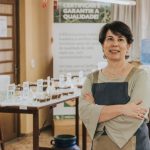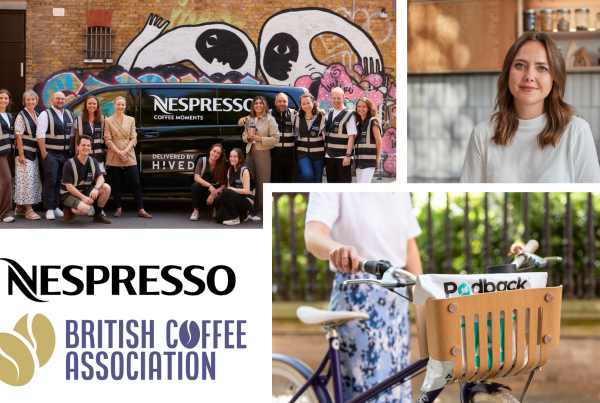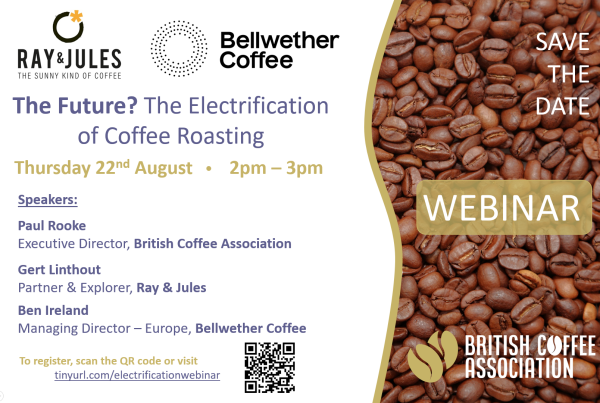 Vanusia Nogueira
Vanusia Nogueira
ICO, Executive Director elect
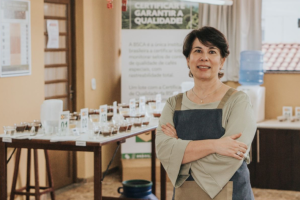
Vanusia Nogueira
When Vanusia Nogueira takes the helm of the International Coffee Organization in May, she’ll be the first woman to lead it in its 59-year history. Speaking to the British Coffee Association from her home in Rio de Janeiro, Vanusia marvels at the prospect of the role she’s about to take up; one she had no intention of applying for initially. “I was actually thinking I might like to take a sabbatical and to work for coffee on a part-time basis. This was my idea last year,” she laughs. But it seems coffee always pulls Vanusia in.
Growing up in Minas Gerais, Brazil’s most prominent coffee-growing area, her father and both grandfathers worked in the coffee industry, but it didn’t have an immediate appeal to a young Vanusia. “When I was a teenager it felt so boring to talk about coffee, to live with coffee and to work with coffee, so I decided to go to Rio to study.”
Having gained degrees in IT and Management and a PhD in Business Administration with Marketing, the next 20 years were dedicated to a career in the private sector. She was a marketing expert, worked as a consultant, and became a partner at PwC. Even when this work took her to Colombia – another significant coffee-producing country – she didn’t consider coffee part of her career plan.
Flowers over coffee

Minas Gerais, Brazil
But when Vanusia’s mother fell ill she decided to quit her job and return home to Minas Gerais to be with her. “When I arrived back there the coffee exporters invited me to work with them. My family has a small property there with coffee and we had some areas available.” Vanusia, however, didn’t plan on going into coffee; instead she chose flowers. She wanted to create a viable flower export business that her mother could run when Vanusia chose to leave. She discussed her plan with the owner of a local port, who was also the President of the Coffee Trade Center of Minas Gerais. “He too came from a very traditional coffee exporting family, and listened to me talking about my flowers for around an hour and he said to me, ‘I don’t have anything to help you with these flowers, but we need you to help us with the coffee.’ His father was close friends with my father and all of them together convinced me to do just one job.”
It was just supposed to be one job, but it’s kept me for more than 20 years
This one job was not insignificant. It was 2002 and Brazillian coffee wasn’t achieving a good price in the markets. Vanusia was tasked with helping find new approaches for fear the growers couldn’t survive this low price for much longer. Vanusia stepped in and started to find solutions. “I had to figure out what was specialty coffee for the market, the perception in the market of Brazilian coffees and which kind of niche markets they could look for. This was my beginning with coffee – and I never went back out of it. It was just supposed to be one job, but it’s kept me for more than 20 years.”
Collaboration is key
Twenty years on, Brazil is the largest producer of coffee, the biggest exporter and supplies the most (sustainably) Certified coffee in the world, as well as the second largest consumer. When asked if this transformation is down to her, she laughs and shakes her head. “I always said I would not do anything alone, we need to do this together as a team. Month by month, year by year I started to convince people to come together with us and I never said no to a new idea.”
Collaboration is key to Vanusia, who’s one of the founders of the World Coffee Producers Forum, works with the Specialty Coffee Association (SCA), Rainforest Alliance, Alliance for Coffee Excellence (ACE) and is outgoing Director of the Brazilian Association of Specialty Coffees (BSCA). Her ability to bring people together to find solutions to shared problems is an attribute that will serve her well when she takes the helm of the International Coffee Organization (ICO). “We are all competitors (in business) but if we work together we will be stronger.
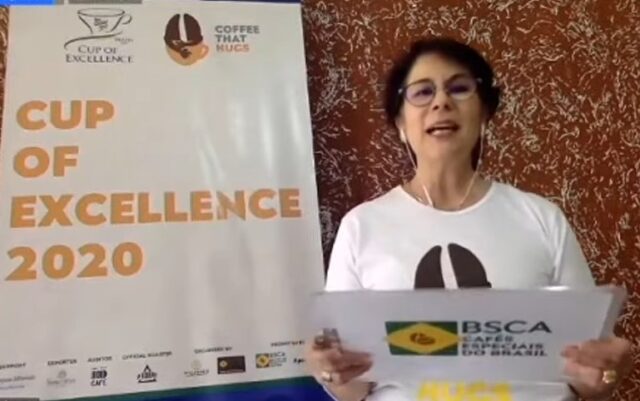
Vanusia Nogueira, Executive Director, BSCA
“There are many opportunities to work together for coffee/cocoa/tea, these commodities have much in common from production approaches to style of plantation and many issues that we need to address as commodities together.” Her key priority going forward is “to have ICO representing all the countries that produce or consume coffee.”
It’s a lofty ambition, but she is already so well supported – something which came to light when she was in the running for the ICO job. “Almost everybody from the coffee producing countries knows me already because I’m the Executive Director of the BSCA and have travelled extensively for this role, and I had the support of a lot of organizations, like International Women’s Coffee Alliance, Rainforest Alliance, and both the private sector and government in Brazil.”
Recognition
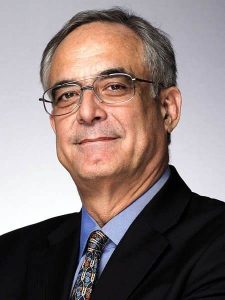
Jose Sette, Executive Director ICO
Her surprise is evident as she explains it’s usually candidates who have worked in Governmental or diplomatic careers who take up this job. “When Jose Sette (outgoing Executive Director), said he wasn’t going to run for a second mandate as ICO Executive Director, we were discussing whether Brazil would put forward a candidate for consideration for the job. He said it needed a candidate with private sector experience – and that could be me. And I said no! They asked me to think about applying and I talked to my family. They said it would be recognition for all I have been doing for this sector during this last 19 years. Some said that could be very interesting for the sector in general and for me and I decided to accept the suggestion.
“It was a consensus in the private sector, who wrote a letter to Brazilian government. All national entities – all presidents – signed this letter and sent to it to the government saying they’d like to put forward a candidate and that candidate was me. I was not expecting that the Brazilian Government would accept the suggestion and they said yes! They agreed with them! So I thought, ‘ok, if you all think I’m the good person for this, then let’s try’.”
If we have goals, purpose and strategies then we need to focus on those and let’s find a way to go forward
Vanusia takes over as Executive Director in May – the first woman to lead to the organization in its history. She’s not at all phased by this. “We are talking about a sector that is mainly male driven; all these leaders that signed the letter to the Brazilian government were men. No women. When I worked in IT during the ‘80s, there were only men.” None of this was a barrier to Vanusia in her career, but she does concede respect doesn’t come automatically to women in the workplace.
“It seems that women need to show that they are good before they’re respected, but when we show our skills and when the men feel we have the capabilities, they started to hear us, to listen to us, to respect our positions and in many times to follow our leadership. I know that in ICO there will be some moments in some countries, where unfortunately we (women) still have some restrictions, but we need to respect their cultures and habits and let’s move on. If we have goals, purpose and strategies then we need to focus on those and let’s find a way to go forward.”
A good time to have creativity
It’s an approach Vanusia applies to all challenges. It’s a tough time to come into coffee as the industry faces myriad difficulties, from the effects of climate change on crops, to the global pandemic, supply chain issues and the impact of the current war in Ukraine. “I always say there are no problems; there are challenges and opportunities and we need to find new solutions. It’s a good time to have creativity.”
Vanusia says there’s no panacea, that there’s a need to address all of the issues one-by-one. “There’s a very big problem with the supply chain; there was a drought in Brazil, then frost. There will definitely be a lower crop this year, so we need to look for the balance between supply and demand to cover this. Now we have coffee at a very high price, but that doesn’t help producers who have a low crop. We’re facing potential issues around the cost of fertilizers due to the Russia/Ukraine conflict.
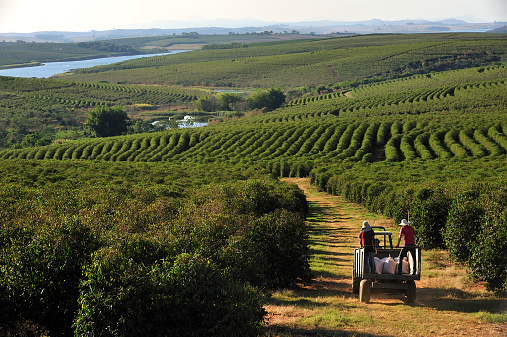
Minas Gerais, Brazil
Promoting coffee consumption
“While coffee prices are higher, so too are production costs. For importing countries, like the UK, in addition to these higher raw material and production prices, there’s currently a very high cost of logistics, lack of containers, lack of boats, it’s very complex at this moment for supplying the chain. We have to explain all of this to consumers; to prove why it’s fair to pay a little more for coffee.”
Vanusia knows this isn’t always easy to explain. “Brazil is the second biggest coffee consumer in the world. Even here, in this producing country, people are asking me why we are paying a higher price for coffee now in our supermarkets. It’s important to find ways to put the end consumer closer to the reality of production to know more about this.”
Going forward together
She believes talking about the quality and sustainability is key. “We have had certification for sustainability in coffee for more than 20 years. It was one of the first crops to have systems for certifying the production and the majority of producers are always looking to achieve best practice. Only a minority of people know about that.”
So as she considers her priorities for the ICO and the coffee industry, Vanusia again references collaboration. “It will be good to have all the countries together sharing their experiences, their expectations, their ideas, their cultures – to have this sector viable and visible for the next generations we need to increase consumption – and we do this better if we are all together.”

